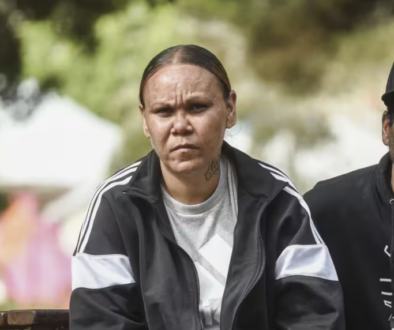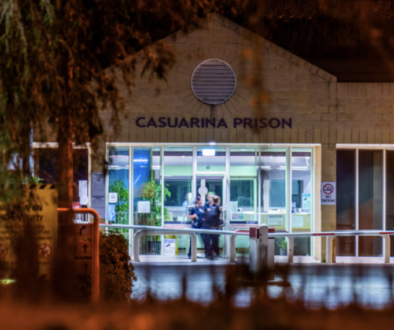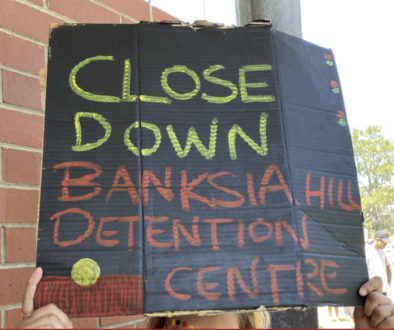Cleveland Dodd inquest told Unit 18 officer believed teen’s death was preventable
Key points:
- In short: The youth custodial officer who found Cleveland Dodd unresponsive in his cell is giving evidence at an inquest into the teenager’s death.
- Daniel Martin Torrijos was disciplined in 2021 for failing to check detainees’ cells seven times when required, but indicating he had on paperwork, at Banksia Hill Juvenile Detention Centre.
- What’s next? Cleveland’s family are bracing for “more pain” as the inquest continues to hear evidence from Unit 18 staff until the end of the week.
The youth custodial officer who found Cleveland Dodd unresponsive in his cell has told an inquest into the teenager’s death that the tragedy could have been avoided.
WARNING: This story discusses incidents of self-harm and contains the name and image of an Indigenous person who has died.
Cleveland Dodd, 16, died after self-harming in his cell in Unit 18, a youth wing of maximum security adult Casuarina Prison.
Youth custodial officer Daniel Martin Torrijos found Cleveland unresponsive in his cell in the early hours of October 12, 2023.
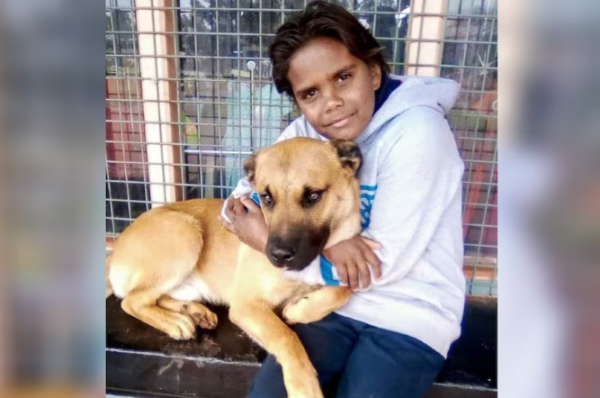
The inquest has heard Mr Torrijos had been disciplined previously in 2021 for failing to check detainees’ cells seven times when required, but indicating he had on paperwork, while working at Banksia Hill Juvenile Detention Centre.
Some detainees were required to be checked on in their cells as often as every 15 minutes.
Mr Torrijos said it was “unrealistic” to meet the required number of cell checks, and had told authorities detainees should have been monitored via cameras.
“It was dangerous for the detainees, it was putting them in danger and they should be under camera,” he said.
Bail denial not passed on: officer
Questioned during the inquest, Mr Torrijos said officers “struggled” to receive training on cultural awareness, CPR, and restraint techniques.
“We’ve just been struggling to function, let alone do the … training,” he said.
The inquest heard Mr Torrijos was unaware Unit 18 had specific behaviour standards and management policies, and that some detainees were put under individual engagement plans.
He was also not aware Cleveland had been refused bail earlier on the day the 16-year-old told officers he was going to kill himself on eight separate occasions.
Mr Torrijos said he would typically be informed of that kind of information — and it would have informed how he managed Cleveland — but that night, he was not told.
The inquest was told Cleveland asked for water as many as 12 times that night, but wasn’t given any.
Mr Torrijos said he had been instructed not to open Cleveland’s cell to give him water because he had already been given six cups earlier in the day.
Outside court, Cleveland’s grandmother Glenda Mippy questioned why officers weren’t able to give Cleveland water.
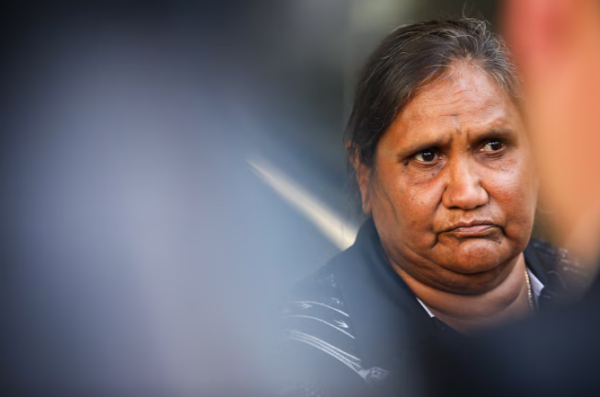
“All the kids was locked in their cells, so what were they doing? They didn’t have time to pass the kid a cup of water?” she said.
Youth custodial officer Toni Priestley, who was also on shift at Unit 18 the night Cleveland was found unresponsive, did not attend the inquest but had a statement read out on her behalf.
Ms Priestley said she made a request to senior officer Kyle Mead-Hunter to unlock Cleveland’s cell and give him water.
“Kyle did not approve this request as he said Cleveland had just been given water with dinner,” she said.
CCTV footage played in the inquest showed Mr Torrijos looking into Cleveland’s cell about 1:50am, when the officer said he found the teenager unresponsive.
He then walked away to retrieve keys, arriving back at the cell about 90 seconds later.
Mr Torrijos said he moved as quickly as his arthritic knees allowed him to.
While getting the keys, Mr Torrijos said he informed senior custodial officer Kyle Mead-Hunter that “Cleveland’s f****** hanging”.
The inquest heard Mr Mead-Hunter put on his duty belt and boots, and CCTV footage showed him leaving a room that initially had its lights off, buttoning up his shirt, and walking with his hands in his pockets to Cleveland’s cell.
In her statement, officer Priestley said she was on a break at that time.
“I had on my headphones and had my back to the rest of [the room] … I didn’t know what was going on when the incident first started,” she said.
She eventually noticed and called a “code red medical” which prompted medical staff, and eventually paramedics, to arrive at Unit 18.
Unit 18 staff watched movies
Under questioning, Mr Torrijos said staff would often watch movies or other downloaded material on a computer during the night at Unit 18, and previously at Banksia Hill.
“To help you stay awake, it was just something you did,” he said.
“The computer was there. It wasn’t something that we were told not to do.”
Mr Torrijos said night shifts were often quiet enough to allow time for staff to watch movies, but he would always stop if something needed to be done.
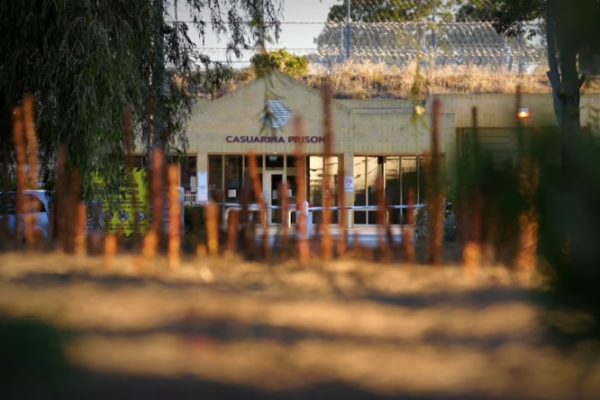
Concluding his evidence, Mr Torrijos said Cleveland’s death was preventable.
“It was a tragedy that happened, and it could have obviously been avoided,” he said.
Coroner Philip Urquhart said he believed the officer had done everything in his power to help Cleveland, and hoped he would continue working in youth detention.
The inquest heard that, in 75 of the 86 days Cleveland was in Unit 18, he was kept in his cell for more than 20 hours.
In the month before he died he received a total of three hours of education split over “an occasional few minutes on an occasional day”.
Speaking outside court, Noongar Elder Uncle Ben Taylor said the conditions in Unit 18 were unacceptable.
“The system has failed, the government has failed,” he said.
‘More pain’ to come: grandmother
Cleveland’s family have travelled to Perth from all over WA to attend the inquest, including his mother Nadene Dodd, who has been supported by suicide prevention advocates Megan Krakouer and Gerry Georgatos.
Speaking after day three of the inquest, Mr Georgatos said failures in youth justice stemmed from the government failing to implement proven methods.
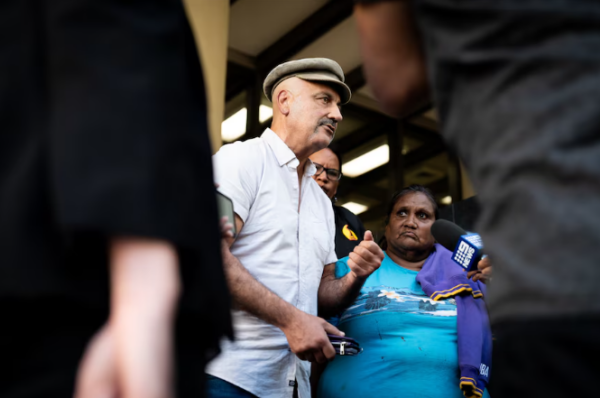
“They say that they will take it on, restorative approaches, rehabilitative approaches, therapeutic approaches — these are buzz words in Australia,” he said.
“When are we going to start getting the two years of training that guards in countries [receive which] have led to the lowering of recidivism and turning around of lives?”
Cleveland’s grandmother Roslyn Sullivan said the inquest had been difficult for the family.
“Seeing it on the video evidence, it’s really heartbreaking, because it’s all come down to them not really acknowledging his problems that he was bringing up to those guards,” she said.
“Today and onwards it’s going to be a bit more, bit more pain.”
The inquest will hear evidence from Unit 18 staff until the end of the week, and then recommence in July.
Contact us
Please provide a brief description of your claim.

